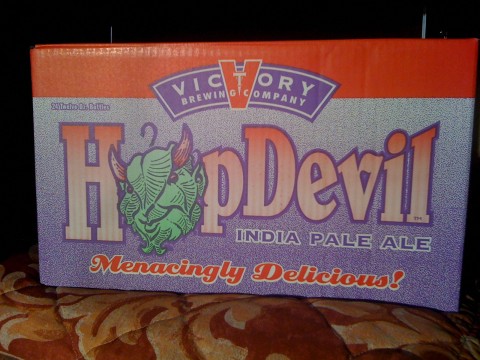I’d just finished dinner at a restaurant within a short walk of my hotel, and I thought it’d be nice to have another beer when I got back to the hotel (in Pennsylvania, you buy less-than-case amounts of beer from licensed bars). I went up to the bar, and ordered six Sam Adams. The server looked at me a bit oddly, then went back to pick up my order.
When she came back, she said, “You know this is going to be very expensive, don’t you?”
“Uh, just how expensive are we talking here?
“Well, six bottles at $4 per bottle expensive. You could probably buy a case for that at [name of nearby beer warehouse].”
Two gents at the bar chime in that I’m crazy to pay that kind of money for just six beers, but they’d happily take any extras from the case I should buy at [nearby beer warehouse].
The three of them then gave me carefully simple instructions on how to find my way to [nearby beer warehouse], where I picked up this:
One of the most hoppy IPA brews I’ve ever tasted . . . for slightly more than what I would have had to pay for six at the bar.




